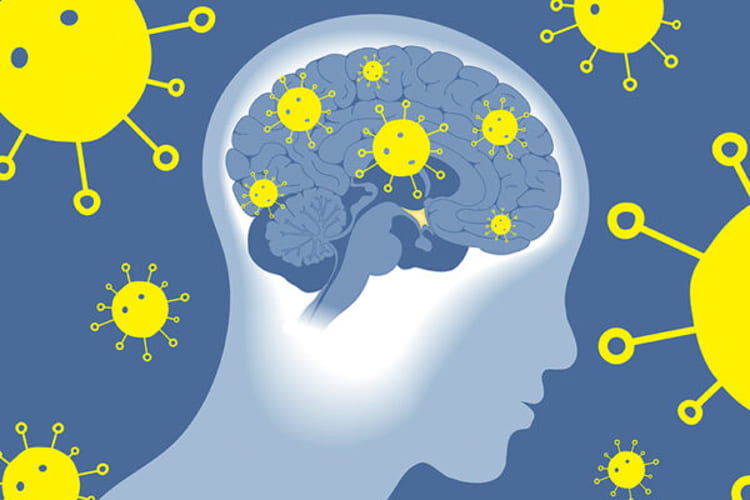If you’ve had COVID-19, it may still be messing with your brain. Those who have been infected with the virus are at increased risk of developing a range of neurological conditions in the first year after the infection, new research shows. Such complications include strokes, cognitive and memory problems, depression, anxiety and migraine headaches, according to a comprehensive analysis of federal health data by researchers at Washington University School of Medicine in St. Louis and the Veterans Affairs St. Louis Health Care system.
Additionally, the post-COVID brain is associated with movement disorders, from tremors and involuntary muscle contractions to epileptic seizures, hearing and vision abnormalities, and balance and coordination difficulties as well as other symptoms similar to what is experienced with Parkinson’s disease.
The findings are published Sept. 22 in Nature Medicine.
“Our study provides a comprehensive assessment of the long-term neurologic consequences of COVID-19,” said senior author Ziyad Al-Aly, MD, a clinical epidemiologist at Washington University. “Past studies have examined a narrower set of neurological outcomes, mostly in hospitalized patients. We evaluated 44 brain and other neurologic disorders among both nonhospitalized and hospitalized patients, including those admitted to the intensive care unit. The results show the devastating long-term effects of COVID-19. These are part and parcel of long COVID. The virus is not always as benign as some people think it is.”
Overall, COVID-19 has contributed to more than 40 million new cases of neurological disorders worldwide, Al-Aly said.
Other than having a COVID infection, specific risk factors for long-term neurological problems are scarce. “We’re seeing brain problems in previously healthy individuals and those who have had mild infections,” Al-Aly said. “It doesn’t matter if you are young or old, female or male, or what your race is. It doesn’t matter if you smoked or not, or if you had other unhealthy habits or conditions.”
